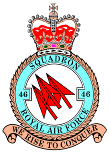|
Report Alfred Jobst, III./KG 27:
Report on the Crete mission with the 1G+MR on 10.01.1944:
The following story of the crash of my He 111, call number 1G+MR, in the Aegean had quite a strange beginning, which seems to me to be worth telling. My squadron, 3rd Group combat-squadron Boelcke, 7th Squadron, had already been withdrawn from the eastern front at the beginning of August 1944 because of lack of fuel (field-airfields Mielec and Biala Podlaska) and transferred to eastern Prussia, where the occupants were sleeping in the straw-filled barn of a manor by Schippenbeil, 60 km south of Koenigsberg. Our remaining airplanes were surrounded with protective banks of earth and covered with camouflage nets at the edge of the nearby airfield. On 9/27/1944, five air crews were unexpectedly chosen with the command to be ready for a special-assignment beginning in the morning on the next day, without any information about the goal and order of the mission. Takeoff was set for 6 o'clock in the morning with the temporary destination of Wiener-Neustadt. I remember a hazy sky covered with low scraps of clouds, in plane-lingo a "laundry room", and takeoff under blind-flight conditions. After a few hundred meters of ascent, however, the morning heavens opened to show the horizon and the rising sun. A strange ritual at takeoff left me feeling conflicted. Beside the start-block, some one had posted a standard bearer, framed from two soldiers, who saluted each of the planes as they took off by sinking the squadron-standard, the existence of which I had never known until that moment. Since we didn't yet have any real idea about our actual destination, the deeper sense of such an emotional gesture was lost on me – honorary tribute or writing on the wall (or both) - puzzling. The only thing that counted was to finally be sitting back behind the wheel of my Heinkel after so many long weeks of aeronautical "abstinence" ready to prove myself in the “service of the fatherland," an attitude, that I myself can scarcely understand today, but is an example of the abused idealism of a youth trimmed on heroism and martyrdom according to the Latin motto that I learned in high school: Dulce et decorum est Pro patria mori: “How sweet and honorable it is to die for the fatherland.“ In Wiener- Neustadt other than a succinct statement of our destination Belgrade, we didn't get any information about our forthcoming mission. The confusion was complete the next morning when we received our orders to fly to Athens with a stopover in Salonika. Hellas! This prospect made me almost forget the war and the coming mission, as it promised the fulfillment of a long-tended dream of my youth. Since reading the sagas of the Greek gods and heroes as a child I had felt magically drawn to this country. However it was only much later, as student of philology, that I found an adequate expression for it in Iphigenia’s words: “Seek the land of the Greeks with your soul.” I would get to see Athens with my own eyes, the acropolis, for me the quintessence of Greece, the Aegean, the fateful sea of Odysseus, and maybe even Mount Olympus, the mysterious seat of the antique gods, if only from the cockpit of a German bomber: already quite an outlandish educational-trip. In Salonika, however we were first received by a swarm of British Mosquitoes, that in a demonstration of strength and superiority greeted us by thundering over the runway in low-flight, tearing us mercilessly from our untimely daydream and chasing us into foxholes and trenches on the edges of the airfield for our own safety. I was deeply impressed with the beauty and speed of this new type of plane classified in the class with our Messerschmitt Me 110 as "destroyers". So that’s what our prospective opponents looked like! The flight from Salonika to Athens on the afternoon of September 29th has remained in my memory as the emotional and aesthetic high point of my life as a pilot. It was a sunny autumn day. For safety reasons we flew low over the Golf of Saloniki, smooth as glass and gleaming in emerald tones, with an occasional view of the almost 3000 meter high Mount Olympus on the starboard, then over the virtually uninhabited island Euboea, whose scant mountain landscape, covered in mild pastels and peacefully grazing sheep brought to view for me the imaginary, poetically fixed concept of Arcadia and for a moment made me forget that this idyll only actually existed in the eye of the beholder. And then Athens lay at our feet, the acropolis illuminated by the mild late-afternoon sunlight. And against all commands and instructions, we circled twice at an altitude of approximately 150 meters. After landing on the airfield in Athens-Kalamaki and being shown our quarters, the comfortable villa of the former Finnish ambassador in Athens, now only spartanly furnished with cots protected by mosquito nets, we were finally filled in on the orders for our forthcoming mission: the evacuation of German soldiers from the island of Crete. At first glance a business that appeared rather harmless. The reality meanwhile, was quite something else. The evacuation process had been going on for several weeks under extremely dramatic circumstances. British, mainly with "Beaufighter" type airplanes were in |





